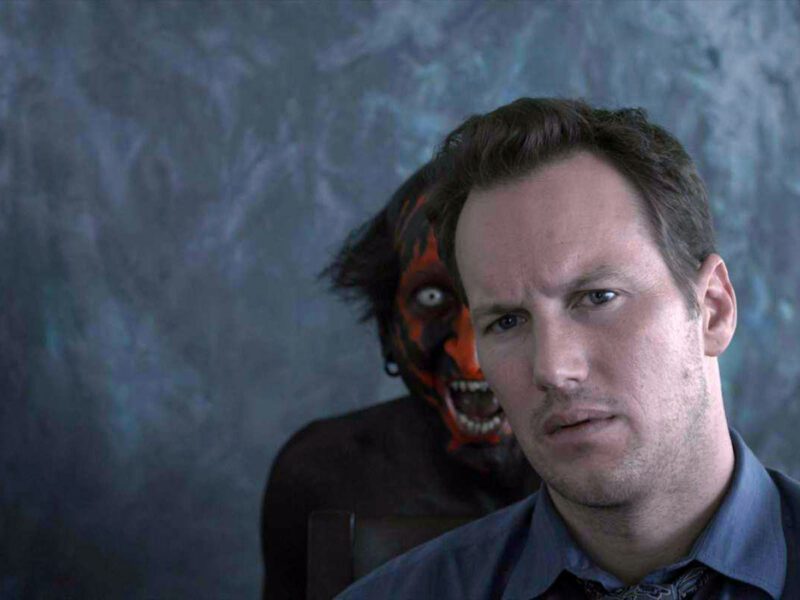
Starlight Media creative executive Elenore Pan is highlighting authentic stories
If you haven’t heard of Elenore Pan, then this is your wake up call. Pan is an award winning indie film director and producer who currently works as creative executive and producer for Starlight Media. Her role has seen her working on stand out films like Crazy Rich Asians, Malignant, and Marshall.
We couldn’t wait to speak with Elenore Pan, who’s own films include sensations like 2018’s Thymes and 2019’s Stagger. Here’s a deeper look at one of the most exciting creatives in the industry.

When did you first know that you wanted to be involved in filmmaking?
I never really knew in that sense. I have been wanting to do it since I was a little girl because films have always been such a big part of my life and introduced me to different cultures and different ways of thinking. Now that I do this professionally, it has been quite a journey of doing the best I can and allowing the rest to unfold on its own. Despite all the challenges, filmmaking has been immensely rewarding and fun, and that’s why I do it.
How did you actually get started in the business?
I did a lot of shooting and exploring on my own in my teenage years and went to several young-adult filmmaking boot camps including the Tisch program. But I would say my first real-world experience was being on set for a huge Chinese period TV drama, and my first job in Hollywood was at UTA.
What was the biggest challenge you faced early in your career, and how did you overcome it?
The biggest challenge is to have faith. I can’t speak for everyone, but it is something I personally hear quite often within the industry, that everyone felt like it is not working at some point in their entertainment career. I really took some time with my career choices and my mental health, and never hoped to just get lucky. It is about the everyday work, and what I need to overcome the most is impatience.
Who are some of your biggest creative influences?
I watch a lot of modern cinema, from German Expressionism, Italian Neorealism, to French New Waves. Contemporary cinema wise, I love Dogme 95 directors, Michael Haneke, Stanley Kubrick, etc.
What do you love most about film as an art form?
The fact that good films are atemporal and aspatial. We don’t really get to defend a film in the same way that an academic can defend his/her dissertation, but compared with theatres, salons, poetry societies, and other literary art forms, filmmaking is one of the very few storytelling artforms that can outlive the creators and continue to touch people.
Do you have a favorite role to play in film production?
I actually don’t have a favorite role. For me, the most important part is to make sure everything that needs to be done is getting done, and I am not confined by job descriptions.
Can you tell us how you came to work for Starlight Media?
I started working for Starlight because I can operate professionally in both English and Mandarin, and I have a fair understanding of how business is done in both cultures.
How would you describe your role in the company to someone who doesn’t work in film?
I remember in In the Blink of an Eye, the editing bible by Walter Murch, he says that the essence of an editor’s job is to cut out the bad parts. Sometimes I feel like a producer’s job is less complicated than it sounds: I need to listen to everyone’s needs and make sure nothing falls apart.
What’s your mission as an artist and as a creative executive at Starlight?
To tell stories that show authenticity and honest reflections on contemporary society.
Can you tell us about how some of Starlight’s upcoming projects fit into that mission?
I can’t discuss upcoming projects at this time since they are confidential but hope to come back and discuss them when I can.

What changes have you seen come to the film industry because of the pandemic?
I see a growing interest in animations and virtual productions creatively, and more scheduling flexibility logistically.
Which of those changes do you think will be permanent?
I think most of the changes will be permanent, actually. Even people within the industry realize that working from home does not necessarily jeopardize efficiency, and we can still produce high-quality content even if we have to use more studios and sound stages than we prefer.
How do you think the industry still needs to change?
I think we have a long way to go in terms of diversity representation in practice both in front of and behind the camera.
What advice would you give to someone who’s looking to get their start as a filmmaker today?
Make sure that you really want this, and don’t take no for an answer.
What are some of the films you’re most excited to see in 2022?
Alcarràs by Carla Simón and Fire by Claire Denis.
Have you binge watched any shows recently?
Inventing Anna, the new season of Euphoria, the new season of Ozark.
If you had to pick a favorite movie of all time, what would it be?
The hardest question for any filmmaker! Might be a tie between Dogville and A Pigeon Sat on a Branch Reflecting on Existence.







